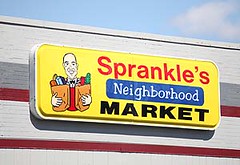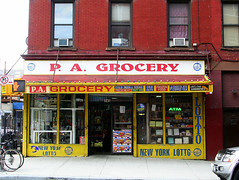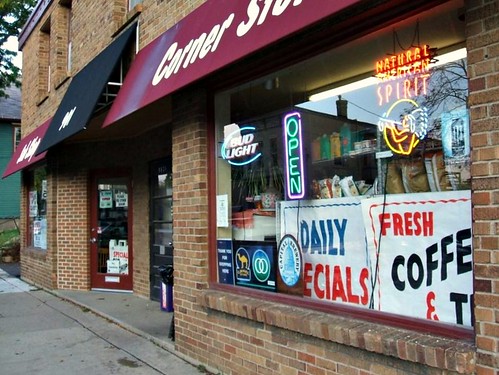Legislation introduced to bring healthy food to distressed neighborhoods

Posted December 3, 2010 at 1:33PM
PolicyLink reports that, earlier this week, members of both houses of Congress introduced federal legislation to reduce the number of low-income Americans living in "food deserts" without convenient access to healthy food. Drawing from a highly successful model in Pennsylvania, the proposed $500 million Healthy Food Financing Initiative would authorize the federal Department of Agriculture to administer a mix of federal loans and grants to provide one-time start-up assistance to supermarkets, corner stores, co-ops, and farmers' markets in under-served, low-income areas. According to PolicyLink, the legislation would also create or preserve 44,500 long-term jobs and 50,000 construction jobs as well as help millions of Americans eat healthier food.
Sponsored by The Reinvestment Fund, The Food Trust, and the Greater Philadelphia Urban Affairs Coalition, Pennsylvania’s Fresh Food Financing Initiative is designed to meet the financing needs of food retailers that want to operate in distressed communities,  where infrastructure costs and credit needs are often higher than elsewhere and unmet by conventional financial institutions. The initiative helps new food markets get off the ground and existing ones refurbish and replace old facilities to improve efficiency and lower costs. Since it was launched in 2004, the Pennsylvania initiative has turned $30 million of state seed money into $190 million in total projects, including 88 new or improved fresh food stores throughout the state.
where infrastructure costs and credit needs are often higher than elsewhere and unmet by conventional financial institutions. The initiative helps new food markets get off the ground and existing ones refurbish and replace old facilities to improve efficiency and lower costs. Since it was launched in 2004, the Pennsylvania initiative has turned $30 million of state seed money into $190 million in total projects, including 88 new or improved fresh food stores throughout the state.
A summary posted by The Food Trust lists examples of four businesses that have been aided, including a 900-square-foot neighborhood market owned by immigrants in Philadelphia's Logan neighborhood; the only supermarkets in two communities near Pittsburgh (Sprankle's, above); a 7,000-square-foot store and the only food market in the rural town of Williamsburg, Pennsylvania (population 1345; see satellite photo below); and a 57,000-square-foot supermarket in Philadelphia’s Eastwick district. All serve communities that would otherwise be without convenient access to healthy food. The Pennsylvania program provides grants and loans to assist a range of needs, including predevelopment expenses, land acquisition, construction, equipment, and energy efficiency measures.
In the midst of the country’s current economic downturn, the need for a comprehensive policy to address the lack of fresh food access in low-income communities and communities of color has become acute. Especially with constricting credit markets, grocery store operators face higher obstacles to investing in these neighborhoods. Meanwhile, obesity and related health problems continue to worsen. Evidence shows that, when people have access to healthier foods, they make healthier choices—and that securing new or improved local grocery stores can also improve local economies and create jobs.
At the federal level, Congressional budget subcommittees have approved limited funds for use by USDA,  the Department of Health and Human Services and the Treasury Department to assist healthy food financing, but there currently is no formal, enacted authorizing legislation.
the Department of Health and Human Services and the Treasury Department to assist healthy food financing, but there currently is no formal, enacted authorizing legislation.
The new bill has at least some bipartisan support. It is sponsored in the Senate by Sen. Kirsten Gillibrand (D-NY), with co-sponsors Sherrod Brown (D-OH), Tom Carper (D-DE), Bob Casey (D-PA), Tom Harkin (D-IA), Frank Lautenberg (D-NJ), Bernie Sanders (I-VT) , Chuck Schumer (D-NY), Arlen Specter (D-PA), and Debbie Stabenow (D-MI); it is sponsored in the House by lead sponsor Rep. Allyson Schwartz (D-PA-13) and co-sponsors Dr. Michael Burgess (R-TX-26), Earl Blumenauer (D-OR-3), Chaka Fattah (D-PA-2), Nydia Velazquez (D-NY-12), and Bobby L. Rush (D-IL-1).
For more information, visit the web sites of PolicyLink, The Food Trust, and The Reinvestment Fund, whose research on supermarket deserts was presented in this blog here.
Move your cursor over the images for credit information.

